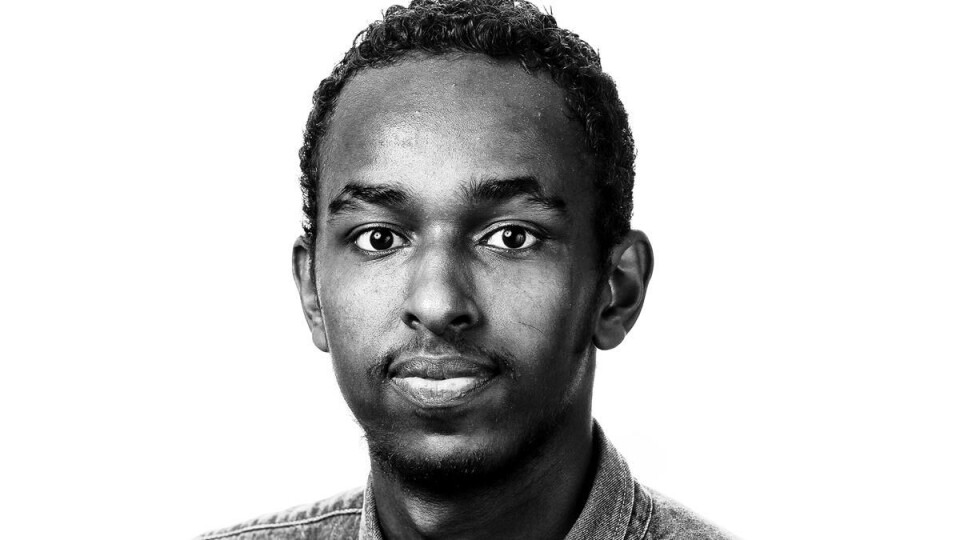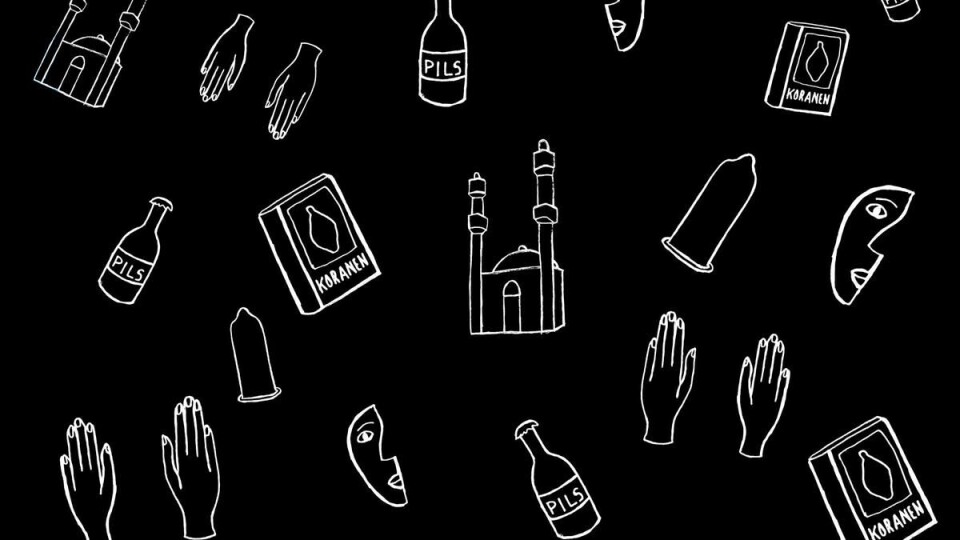
The double life of a young Muslim in Norway
On weekdays, most of us were presentable and well-behaved. But on the weekends, it was time for secret drinking and sex, breaking free from the religious control of our everyday lives.
Every Saturday morning we sat in the local mosque, a half-circle around the elderly hafiz. A hafiz is someone who has memorized the Koran, often entrusted with teaching and preaching to children and young adults in the mosque. Back then, we were boys on the brink of becoming teenagers, and faced with puberty and adolescence it was time for us to learn about sexual morals, abstaining from alcohol, and how to be pious. We were to be molded into good Muslims.
On the way to and from the mosque, the mood was different. We were less interested in religion, and more preoccupied with the party on Saturday, and if that cute girl from class was going to show up. Our interests were material and tangible. Even then it struck me how at odds our lives inside and outside the mosque were.
Related: «Sana» from Skam about her faith: – I felt different
In a new survey from World Value Survey, 16-year-olds in Oslo and Akershus were asked about religion. For non-Muslim youth, such as those from Christina families, it was apparent that religion wasn’t as important for them as it was for their parents’ generation. But Muslims answered much more often that they were as religious as their parents. I suspect that answer is based more on loyalty than sincerity. According to the same survey, many young Muslims see religion more as an identity, and not as a set of rules to live by.

The mosque has its own social rules, different from Norwegian society. Individualism is set aside, and you’re embraced lovingly with open arms. Everyone calls each other «brother» and «sister,» even if they’re not related, they don’t come from the same country, and maybe they haven’t even talked before.
That’s how it was for me. A lot of religious instruction went in one ear and out the other. Sometimes I found it moralistic, or even repellent. But I still felt at home in that environment. It wasn’t necessarily about religion; it was a feeling of belonging.
Many of us feel loyal to this part of our identity, which we see taken to task by the media and society. Growing up Muslim has given many of us happy childhood memories, and good family values. Young Muslims know how wonderful it is to be part of a Muslim household or community: the solidarity of a big family, the satisfying feasts at the height of Ramadan, and the feeling of togetherness at the mosque. The mosque has its own social rules, different from Norwegian society. Individualism is set aside, and you’re embraced lovingly with open arms. Everyone calls each other «brother» and «sister,» even if they’re not related, they don’t come from the same country, and maybe they haven’t even talked before.
That kind of closeness is something I remember finding very appealing when I was young, often in contrast to non-Muslim Norwegian society, which I felt lacked unity or warmth. I remember once when I was nine years old, I went to a non-Muslim friend’s house, and he wanted to make some sandwiches for us. He yelled to «Trude» for help. I wondered who «Trude» could be, and was completed surprised when I found out it was his own mother. What a cold, impersonal way to address her! I remember thinking. It’s only an anecdote, but I think it illustrates an important difference in our cultures. Those differences can explain exactly why so many young Muslims today feel such strong loyalty to elders – much more so than non-Muslim youth.
But loyalty to our «demonized» parents’ generation comes with its own problems.
There’s a concept in psychology called cognitive dissonance: a person can have several attitudes or behaviors that don’t correspond to each other. The theory was presented and popularized by Leon Festlinger, a psychologist who believed this dissonance could create feelings of guilt and shame. One way to resolve it, such as in the case of a young Muslim in Norway, is to live a double life.
On weekdays, most of us were presentable and well-behaved in front of our parents and the community. But on the weekends, it was time for secret drinking and sex, breaking free from the religious control of our everyday lives. At least that way we could keep the status quo on the outside, even if we weren’t resolving the internal conflicts of this double life. Still, there was always a lingering sense of betrayal, some self-awareness of violated self-respect and values.
I had to deal with this impossible task too: juggling two worlds at odds, trying to satisfy the outside world, and especially my family. Even though I came from a conservative Muslim family, I never had any issues with drinking or having sex outside of marriage. None of those values had rubbed off on me, and from an early age I thought that kind of moralizing was both outdated and reprehensible. I was curious about my peers though, and how they could handle and rationalize this situation tormenting them. Mostly they just didn’t want to talk about it. It was too difficult to square the way they were supposed to act with how they actually were.
Over the years that group of young boys, myself included, slipped out of the mosque community more and more often. We spent Saturdays the way non-Muslim youth often do instead, despite our years of religious upbringing.
Life as a young Muslim in Norway is often a vicious circle of normal, youthful curiosity, followed by regret and shame. It’s difficult to meet the demands of two very different, contradictory worlds. Somewhere along the way we have to decide which lifestyle we most identify with. For me, it was never Islam.































